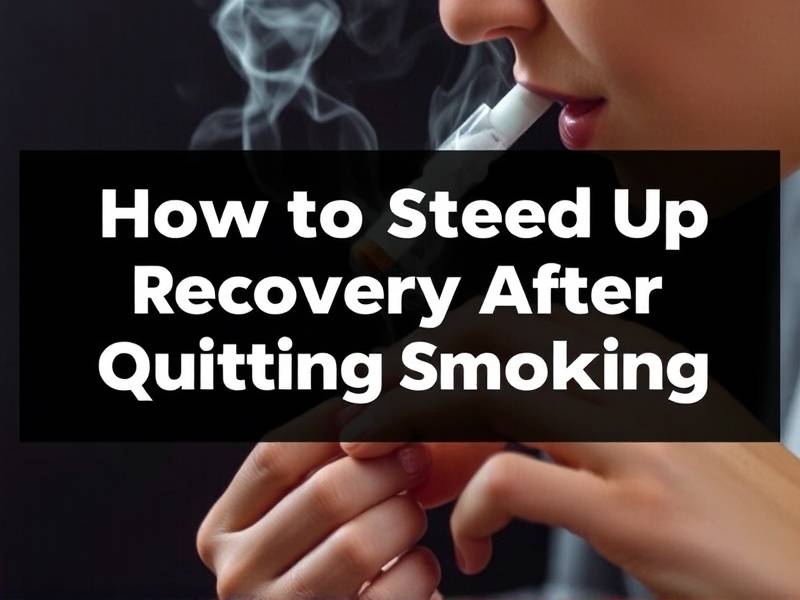How to Speed Up Recovery After Quitting Smoking: Effective Tips and Strategies
How to Speed Up Recovery After Quitting Smoking: Effective Tips and Strategies
Introduction: Quitting smoking is a significant step towards a healthier lifestyle, but the journey can be challenging. Many individuals struggle with withdrawal symptoms and cravings after quitting. This article provides effective tips and strategies to speed up recovery after quitting smoking, helping you navigate through this transformative period.
Understanding the Recovery Process

-
Identifying Withdrawal Symptoms: Withdrawal symptoms are common when quitting smoking. They include anxiety, irritability, difficulty concentrating, and cravings. Recognizing these symptoms is the first step in managing them effectively.
-
The Importance of Patience: Recovery from smoking cessation is not an overnight process. It requires patience and perseverance. Understanding that withdrawal symptoms will diminish over time can help maintain your motivation.
Effective Tips for Faster Recovery
-
Stay Hydrated: Drinking plenty of water helps flush out toxins from your body and keeps you feeling refreshed. Aim for at least eight glasses of water per day.
-
Eat a Balanced Diet: A well-balanced diet rich in fruits, vegetables, whole grains, lean proteins, and healthy fats can improve your overall health and aid in recovery.
-
Exercise Regularly: Physical activity increases endorphins, which are natural mood lifters. Engaging in regular exercise can help reduce withdrawal symptoms and improve your overall well-being.
-
Mindfulness Techniques: Practices like meditation, deep breathing exercises, or yoga can help manage stress and reduce cravings.

-
Seek Support: Joining a support group or seeking counseling from a therapist can provide emotional support during your recovery journey.
Strategies for Long-Term Success
-
Set Clear Goals: Establish specific goals for your quit date and recovery process to stay focused on your objectives.
-
Avoid Triggers: Identify situations that trigger cravings or make you want to smoke and find ways to avoid them or cope with them effectively.
-
Reward Yourself: Set up rewards for reaching milestones in your recovery journey to stay motivated.
-
Stay Informed: Keep yourself informed about the benefits of quitting smoking by reading articles, watching videos, or attending workshops.
Conclusion: Quitting smoking is a commendable decision that requires dedication and commitment. By implementing these effective tips and strategies, you can speed up your recovery process after quitting smoking. Remember that patience is key – it takes time to overcome addiction, but the benefits are worth the wait.
